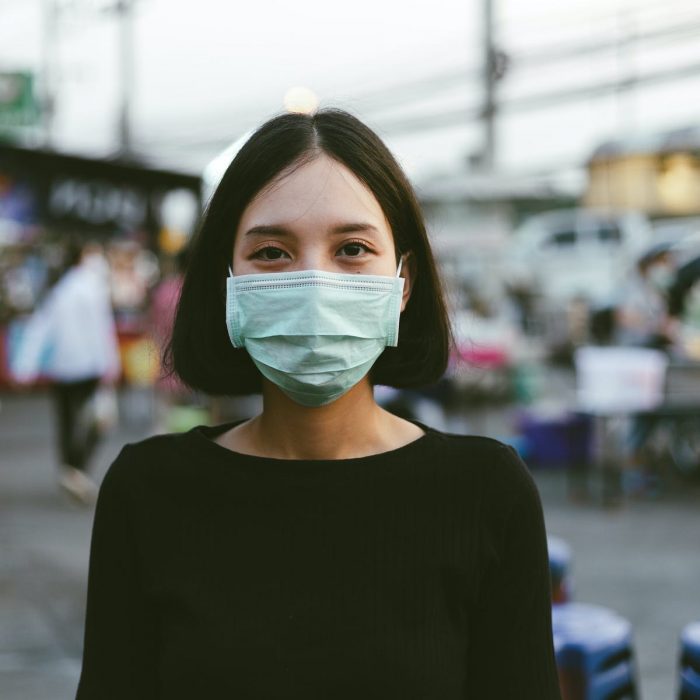Coronavirus symptoms may last from 2 to 14 days, and no symptoms may appear at all! But now, some time after the spread of COVID- 19, doctors have discovered that some symptoms can last for weeks and sometimes months, even after The patient’s test results show negative.
Below is a list of those issues that are currently being reported.

1 – Chest pain and discomfort
Some people infected with Coronavirus have reported continuing to suffer from some symptoms, including a burning and tingling feeling in the chest and neck accompanied by a slight increase in temperature, in addition to some other symptoms such as heart palpitations, discomfort, fatigue, and pain in the chest and ribs.
2 – Loss of the sense of smell and taste
One of the symptoms that many people have is a loss of the ability to taste and smell, usually at first, but for some, it does not return until after the disease is gone.
3 – Vertigo
Vertigo is a sensation of feeling out of balance. Many people infected with the kurna virus have expressed a feeling of dizziness and dizziness, and this feeling has continued even after two weeks since the infection was confirmed.
4- Lung tissue damage
Doctors have noticed that chronic fatigue after recovery from COVID- 1 infection 9 is a possibility, and some people who recover continue to experience respiratory symptoms as a result of lung tissue damage. Researchers also found that long-term scarring of the lungs, known as fibrosis, can be a problem that can cause different levels of impaired breathing in the long term.
5- Heart problems
One can suffer from heart palpitations and minor heart defects. Palpitations make you feel your heart beating too fast or too fast, or fluttering.
6- A persistent dry cough
A dry, intermittent cough due to infection with the COVID virus is caused by irritation of the lung tissue. When air enters the lungs and passes through the irritated tissues, it causes a cough. The cough will likely continue until the body has completely healed of any damaged tissue.

7 – Post-intensive care unit syndrome
This is a common finding of staying in the ICU for an extended period of time, and it is common in COVID- 1 patients 9 who require hospitalization. The main symptoms that we see similar to PTSD are anxiety, depression, nightmares, and long-term mental and physical health complications arising from the stress of this type of health experience.
8- Shortness of breath
As the patient recovers, they may be able to breathe well at rest. However, with the increased demand for oxygen, that is, increased activity, he suffers from shortness of breath for up to two months, with a burning feeling in the lungs.
For those patients who are seriously ill with COVID- 19, changes in lung and kidney function can lead to chemicals in the blood that is toxic to the brain. The effects of these chemicals can lead to changes in brain function, some of which may last for several weeks to months or more.




![The Top & Most Popular Seafood Bucket Restaurants in Dubai for you [Never Miss]](https://uae24x7.com/wp-content/uploads/2020/09/8-seafood-in-a-bucket-scaled-e1600739237403.jpg)
![Procedures for Renewing the Driving License in Abu Dhabi [3 Simple Steps]](https://uae24x7.com/wp-content/uploads/2020/07/Capture-9-e1595666454466.jpg)





